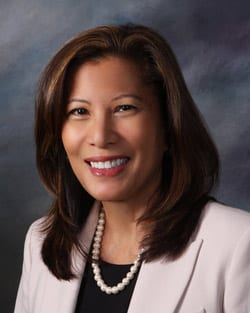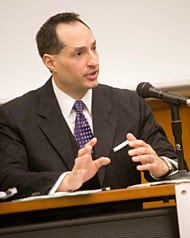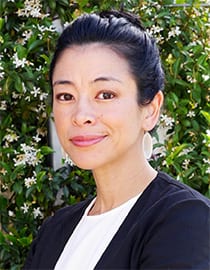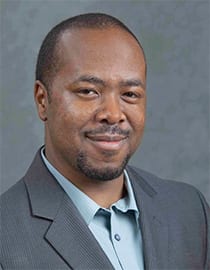By Andrew Cohen

For decades, political ideology offered a strong indicator of how Americans viewed federalism: conservatives generally lauded states’ rights while liberals supported expansive uses of federal power.
With the election of President Trump and the emergence of his administration’s agenda, a more complex framework has become visible—drawing increased attention from policymakers, attorneys, and scholars. Experts from all three groups will gather November 3 at Berkeley Law for a conference that explores federalism’s rising importance and potential path.
Free registration is open for the daylong event, which will examine federalism’s implications for legal responses to climate change, and immigration law and policy—specifically border security, travel bans, and sanctuary cities.
“We chose to focus on these issues because they’re directly relevant to what’s happening in California,” said Professor Bertrall Ross, who co-chairs Berkeley Law’s Faculty Planning Committee with Assistant Professor Karen Tani. “California is at the forefront with sanctuary cities, and the state has long been a national leader on climate change regulations.”
The Honorable Tani Cantil-Sakauye, Chief Justice of California, will keynote the event in a conversation with David A. Carrillo ’95. She will discuss how federalism concepts apply to state and federal court interactions, the importance of those courts’ distinct roles, and how federalism principles apply in state court decision making.

Carrillo, executive director of Berkeley Law’s California Constitution Center, called Cantil-Sakauye’s appearance “a very special privilege.” As the state’s highest judicial officer, she “is in a unique position to consider important legal questions, and federalism is no different. For academics, a discussion like this is a chance to find out how scholarly perspectives are received in the courts. For practitioners, any insight into the court’s views about a substantive issue is a valuable learning opportunity,” Carrillo said.
Balance and breadth
Earlier in the year, Professor and then-Interim Dean Melissa Murray began conceptualizing the conference as it became evident how central federalism would be to America’s current political and policymaking landscape.
Tani and Ross then worked with Carrillo and others to design the program and recruit a diverse slate of participants with wide-ranging backgrounds, views, and expertise. That roster includes high-profile experts such as former Michigan Governor Jennifer Granholm, climate change litigator Sean Donahue, and San Francisco City Attorney Dennis Herrera, as well as top academics in law, political science, and history.

“We wanted to bring in people who are thinking about how federalism works in the real world—people who are familiar with theoretical accounts of American federalism, but can also speak to federalism’s actual meaning for politics and policymaking,” Tani said. “It’s great to welcome a really diverse group—not only doctrinal scholars, but also historians and political scientists, policymakers at all different levels of government, and people at different points on the political spectrum.”
Tani said that outside of law schools and government departments, “not many people were interested in federalism before Trump was elected. We thought we understood it. Now there’s a renewal of interest because it appears that the national government is making dramatic policy shifts, in areas that regular people really care about. Stock phrases like ‘states’ rights’ and ‘local control’ take on new meaning in the context of resistance to these changes.”

Tani noted that this is also a fascinating moment for people who have long been interested in federalism. “Now that conventional positions have been upended, can we agree on federalism’s ground rules? Or will we just accept that those rules are going to fluctuate depending on where your party enjoys power within the federal system?”
By bringing in “folks on both sides of the aisle to engage in reasoned conversation,” Ross hopes that Berkeley Law can help “set a model for the types of conversations we should be having” on pivotal issues.
While conference participants will describe how notions of federalism are shifting, Carrillo noted that the foundational arguments remain unchanged.
“The flexible power balance between the federal and state governments is intended to be dynamic and responsive to situational needs,” he said. “Today’s federalism questions are typical of those past: what answers are best for the day’s policy debates, and should those be national or state solutions?”